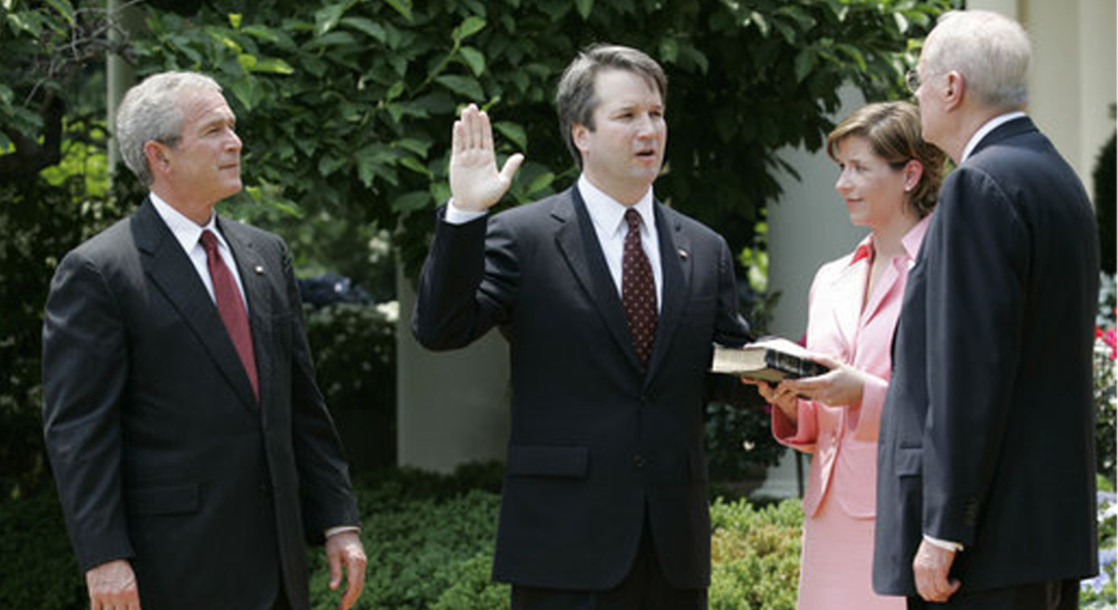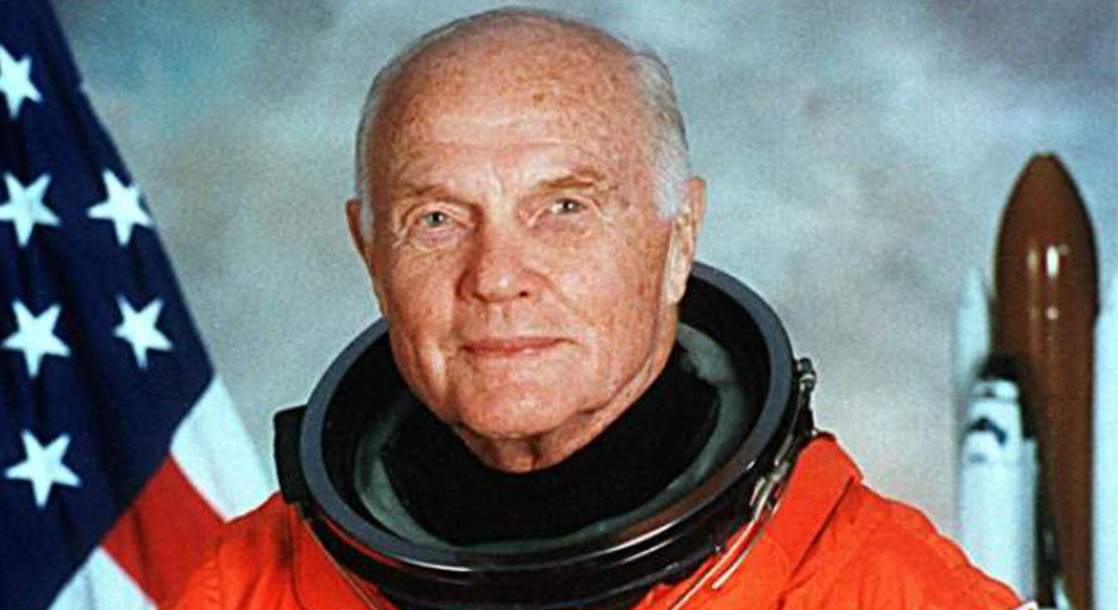Photo via White House photographer Eric Draper
Judge Brett Kavanaugh is in line for a huge promotion. After a week and a half of anxious speculation among media and politicos, President Trump told reporters gathered at the White House Monday that Kavanaugh — former aide to President George W. Bush, clerk to Supreme Court Justice Anthony Kennedy, and current Court of Appeals judge — would be his nomination to fill retiring Justice Kennedy’s seat on the nation’s highest court.
According to the New York Times, Judge Kavanaugh was among the most conservative names on a list of potential nominees compiled for the president by the right-wing think tank, the Federalist Society. During his announcement, Trump declared Kavanaugh “one of the finest and sharpest legal minds in our time.”
As expected, Kavanaugh’s nomination was met with near-ubiquitous rejection from Democratic legislators, continuing the partisan battle that blocked President Obama from filling the Supreme Court seat left vacant by the death of Antonin Scalia in 2016. By delaying that appointment until Trump took office, Republican legislators secured the court’s current conservative bent. If Trump is successful in placing Judge Kavanaugh on the bench, the Court will lean towards the right for decades to come.
“Enormously important issues hang in the balance,” Democratic Senate Minority Leader Chuck Schumer said Monday before Trump’s announcement. “The right of workers to organize, the pernicious influence of dark money in our policy, the right of Americans to marry whom they love, the right to vote.”
Outside of implications for Roe v. Wade and other social freedoms upheld by the Supreme Court, Kavanaugh’s long history of defending presidential power against the checks of law and order has raised a number of red flags, especially considering Trump’s tenuous standing in special counsel Robert Mueller’s ongoing investigation of Russian interference in the 2016 general election.
In a 2009 article written for the Minnesota Law Review, Kavanaugh said that he did not believe that a sitting president should be subject to such distractions as lawsuits or subpoenas.
“I believe that the president should be excused from some of the burdens of ordinary citizenship while serving in office,” Judge Kavanaugh wrote. “Even the lesser burdens of a criminal investigation — including preparing for questioning by criminal investigators — are time-consuming and distracting. Like civil suits, criminal investigations take the president’s focus away from his or her responsibilities to the people. And a president who is concerned about an ongoing criminal investigation is almost inevitably going to do a worse job as president.”
According to a separate report from the Times, replacing Kennedy with a judge holding such ideological leanings may be more than good fortune for the president. Over the first eighteen months of Trump’s presidency, White House sources say that presidential aides and advisors had guaranteed Justice Kennedy that, if he retired, he would be replaced by someone of whom he would approve. In a tweet from NBC’s Leigh Ann Caldwell on Tuesday, the reporter said that according to anonymous sources, Trump and Kennedy never met, but the retiring justice passed along a list of approved replacements for his seat. Judge Kavanaugh was reportedly on that list.
Despite vocal opposition from a number of high-profile Democrats lead by Sen. Schumer and suspicious circumstances surrounding Kavanaugh’s nomination, the current Republican Senate majority will make it near-impossible for Democrats to block the appointment, unless they are able to convince some Republicans to turn their vote and challenge the president. Still, opposing senators are expected over coming months to try and delay a final vote in hopes that November’s midterm election could shift the power balance on Capitol Hill, giving Democrats enough seats to reject Trump’s nomination.
You can read a full breakdown of Judge Kavanaugh’s judicial history on everything from voting rights to climate change here.











